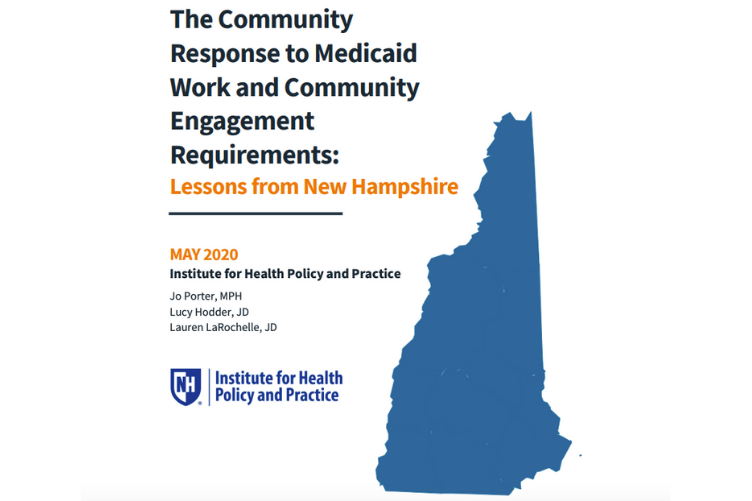
UNH's Institute for Health Policy and Practice (IHPP) and Franklin Pierce School of Law have released a new report assessing New Hampshire’s Medicaid Work and Community Engagement Requirements and their impact on the state’s community providers.
When the Work and Community Engagement Requirements were first implemented in 2019, they were costly for many community health organizations and confusing for beneficiaries, according to the report, “The Community Response to Medicaid Work and Community Engagement Requirements: Lessons from New Hampshire,” which was funded in part by the Robert Wood Johnson Foundation. The work and community engagement requirements were suspended in July 2019 when implementation threated access to health insurance by thousands of Granite Staters.
“Community organizations realized many uncompensated costs associated with the implementation of the work and community engagement requirements, and many additional potential costs and impacts were avoided only because the program was suspended before full implementation,” says Lucy Hodder, JD, Director of Health Law and Policy at IHPP, Franklin Pierce School of Law.
The report reviews the history of the Work and Community Engagement Requirements (WACER), ending with the decision in the Philbrick v. Azar court case striking down the requirements. It also includes an assessment of the requirements’ substantial impact on community organizations, which were not predicted or fully assessed in the planning and implementation of the program.
“Lack of health insurance is associated with delays in seeking needed care, reduced continuity of care, higher rates of chronic illness and morbidity, medical debt, as well as other negative consequences,” says Jo Porter, Director of the Institute of Health Policy and Practice.
Michele Merritt, President and CEO of New Futures, New Hampshire’s leading health policy and advocacy organization, says that organization closely monitored the implementation of New Hampshire's work and community engagement requirements. "The findings from this report reflect the experiences of many of our healthcare partners,” she says. “Learning from this experience is critical to ensuring we build a strong system of coverage and supports for our communities and families in need. We thank UNH Law and IHPP for conducting this important research, and we look forward to continuing our work together to strengthen the health and wellness of our state.”
The research was funded by the Robert Wood Johnson Foundation (grant #76038). The views expressed do not necessarilty reflect those of the Foundation.
For questions, please contact Bridget Drake, Bridget.Drake@unh.edu.
-
Compiled By:
Callie Carr | UNH College of Health and Human Services | callie.carr@unh.edu | 603-862-0970
















































